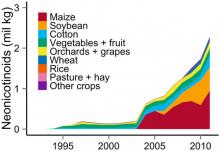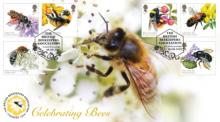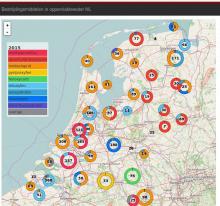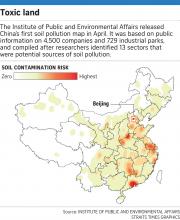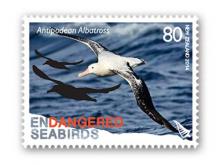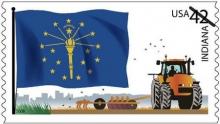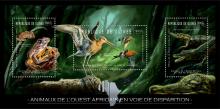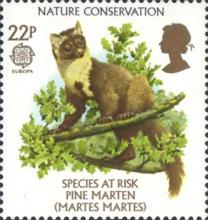Seed Treatments Have Driven the Rapid Increase of Neonicotinoids in US Pest Management
Neonicotinoids are the most widely used class of insecticides worldwide, but patterns of their use in the U.S. are poorly documented, constraining attempts to understand their role in pest management and potential nontarget effects. We synthesized publicly available data to estimate and interpret trends in neonicotinoid use since their introduction in 1994, with a special focus on seed treatments, a major use not captured by the national pesticide-use survey.

